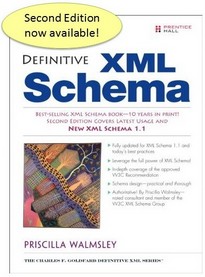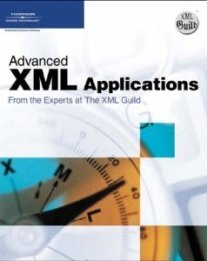PropertyType
A property of a NewsItem, NewsComponent, ContentItem, Topic, Location or Party. The property has a name and either a simple Value or a complex value consisting of a set of further properties. The property has a name and either a simple Value or a complex value consisting of a set of further properties.
Complex type information
Namespace: http://iptc.org/std/NewsML/2003-10-10/
Schema document: NewsML_1.2.xsd
Content
- Property [0..*]
Attributes
| Name | Occ | Type | Description | Notes |
|---|---|---|---|---|
| Duid | [0..1] | xsd:ID | Duid is a "Document-unique Identifier". It must satisfy the rules for XML ID attributes: it must only contain name characters, and it must start with a name-start character (not a digit). Its value must be unique within any NewsML document. Every NewsML element type has Duid as an optional attribute. Combined with the Identifier element, providing a value for the Duid of any element in a NewsML document makes the element globally identifiable. The Identifier element gives global identification to the document, and the Duid provides local identification for the element within the document. | from group localid |
| Euid | [0..1] | xsd:string | Euid is an "Element-unique Identifier". Its value must be unique among elements of the same element-type and having the same parent element. Use of Euid attribute makes it possible to identify any NewsML element within the context of its local branch of the NewsML document tree. This makes it possible to copy, or include by reference, subtrees into new combinations in ways that would break the uniqueness of Duids (thereby forcing new Duids to be allocated), but still being able to retain the identity of each element. If Euids are maintained at every level, it is possible to identify, for example "The ContentItem whose Euid is abc within the NewsComponent whose Euid is def". Such identification patterns would be preserved even after "pruning and grafting" of subtrees. | from group localid |
| FormalName | [1..1] | xsd:string | A string of characters whose meaning is determined by a controlled vocabulary. The controlled vocabulary may (but is not required to) take the form of a NewsML TopicSet. | from group formalname |
| Vocabulary | [0..1] | xsd:string | The Vocabulary attribute, if present, provides a pointer to a TopicSet which is the controlled vocabulary that can be used to resolve the meaning of the FormalName. The value of the Vocabulary attribute is an http URL or a NewsML URN, or the # character followed by the value of the Duid attribute of the a TopicSet in the current document. If there is no Vocabulary attribute, then the controlled vocabulary to be used is located by the following algorithm: - Proceed to the parent of the current element. - If it has a Catalog element as its immediate child, see whether that Catalog contains a Resource element whose DefaultVocabularyFor child contains an XPath pattern that is matched by the current element. If so, then the controlled vocabulary is the resource identified by that Resource element. - If the parent does not meet the above condition, proceed to its parent and check the same condition. - Continue until a vocabulary is found, or no further parent elements are available because the root element has been reached and it too fails to meet the condition. | from group formalname |
| Scheme | [0..1] | xsd:string | The Scheme attribute, if present, serves to distinguish which of possibly multiple naming schemes in the controlled vocabulary is the one that governs this FormalName. For a match to be obtained within the controlled vocabulary, the rule is that the FormalName and the Scheme must both match. If there is a Scheme attribute on the current element, then both the FormalName and the Scheme in the controlled vocabulary must match. The controlled vocabulary will be located either through the Vocabulary attribute (if present) or through the appropriate Catalog entry where the Context matches the current element. If a Vocabulary attribute is present that points to a TopicSet then the FormalName may be resolved using this TopicSet. This overrides any relevant Catalog entry. If there is no Scheme attribute on the current element and no Vocabulary attribute then a Scheme may be assigned through as follows: If the Catalog, within the instance or externally referenced from the instance, contains a Resource element with a DefaultVocabularyFor child element with a Context attribute that matches the current element and a Scheme attribute with a value declared, then this Scheme may be applied when resolving the current element FormalName. If the DefaultVocabularyFor has no Scheme value then a match will be to an item in the vocabulary that has the current FormalName and no Scheme. | from group formalname |
| AssignedBy | [0..1] | xsd:string | An identifier for the party assigning a piece of metadata. This can be a string that designates the party informally (for example, a person's name), or a pointer in the form a fragment identifier consisting of a # character followed by the Duid of a Topic corresponding to the party. | from group assignment |
| Importance | [0..1] | xsd:string | An indication of the importance the party assigning a piece of metadata attaches to it. The value of the Importance attribute is a formal name for a level of importance. Its meaning and permitted values are determined by a controlled vocabulary. | from group assignment |
| Confidence | [0..1] | xsd:string | An indication of the confidence with which a piece of metadata has been assigned. The value of the Confidence attribute is a formal name for a degree of confidence. Its meaning and permitted values are determined by a controlled vocabulary. | from group assignment |
| HowPresent | [0..1] | xsd:string | An indication of the way in which a piece of metadata applies. The value of the HowPresent attribute is a formal name for the way the metadata applies. Its meaning and permitted values are determined by a controlled vocabulary. | from group assignment |
| DateAndTime | [0..1] | NewsMLDateTime | The date and (optionally) time at which a piece of metadata was assigned. | from group assignment |
| Value | [0..1] | xsd:string | A string representation of the value of a Property. | |
| ValueRef | [0..1] | xsd:string | A pointer to the value of the Property. This might be a Topic in a TopicSet, or any other piece of data. If both Value and ValueRef are provided, then ValueRef identifies the actual value of the property, with Value simply providing a string representation or mnemonic for it. | |
| AllowedValues | [0..1] | xsd:string | The AllowedValues attribute, if present, is a pointer to a controlled vocabulary that delimits the set of allowed values for the property. This may be an http URL, or a NewsML URN, or a fragment identifier consisting of a # charactger followed by the Duid of an element in the current document. The pointer must reference either a Resource element that designates an external controlled vocabulary, or a TopicSet element, that is itself the controlled vocabulary. | |
| AllowedScheme | [0..1] | xsd:string | The AllowedScheme attribute, if present, distinguishes the Scheme in a controlled vocabulary that delimits the set of allowed values for the property. For a match to be obtained within the controlled vocabulary both the AllowedScheme must match the Scheme in the vocabulary and the Value must match the FormalName in the vocabulary. The use of the AllowedScheme attribute serves to indicate that the Value data is drawn from a controlled vocabulary rather that being an uncontrolled entry. |
Used by
- Element Property



